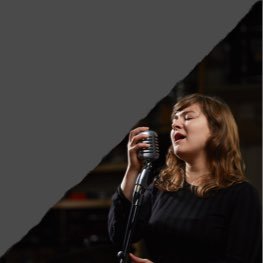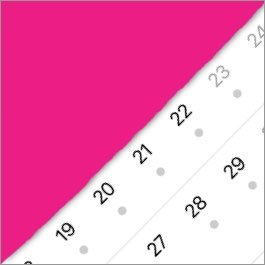MEET THE EXAMINER - MIKE MANSBRIDGE

'Music can only really be alive when there are listeners who are really alive’ – Aaron Copland, What to Listen for in Music.
About sixteen years ago, I started to play in orchestras for West End shows in London, usually in my own chair and sometimes as a deputy for a colleague. A very common question I would be asked was: don’t you ever get bored of playing the same music night after night?
The only honest answer I could give was that I never did, on the simple principle that it might well have been the two hundredth time I’d played the show, but it was still, every evening, the first time that night’s audience had heard it. Now when I sit behind desks and listen to young musicians sing and play me songs I’ve heard so many times before, it’ll still be the first time I’ve heard them play or sing these – everyone brings along their own approach and everyone deserves to be listened to afresh. I could never tire of hearing anyone perform anything.
I say ‘young musicians’ but a critical thing to remember is that the exams are open to all, they testify to different personal achievements, vary in their consequences and celebrate the many divergent paths that people have taken into music. My youngest candidate was four years old and my eldest was eighty-three, and I’m looking forward to meeting whoever will break either of those records. I’ve had a world champion gymnast, a Winter Olympic figure-skater, the grandson of one of the world’s most famous hairstylists (he had a mullet) and the granddaughter of one of the famous musicians who played on the original of what she was about to sing. Plus another six thousand or so magnificent candidates alongside those.
The clearest use of the exam system is of course to see each grade as a signpost along a path of musical development. Trinity sets the standards needed to reach each stage, and this fosters music teaching and learning along the way. Those who want to go on to performing courses at universities or conservatories will be expected to be of at least Grade 8 standard and our Rock & Pop exams are also now helping contemporary musicians to get there, with the same much valued and widely-recognised accreditation. If higher musical training isn’t your thing at Grade 6 and beyond, then every exam pass, merit and distinction is worth a certain number of UCAS points, which can be of use on your journey towards a different career.
In Trinity’s locations around the world, music is sometimes not the core subject that it is in the UK up to Key Stage 3. While many schools in the UK offer instrumental lessons, usually provided by peripatetic teachers or a local music service, it isn’t always the case elsewhere. Even in the UK, in-school practical tuition often leans towards the more classical disciplines and pop instrumental lessons tend to be out-of-school activities, rather than just extra-curricular ones. Consequently, there are many candidates worldwide with different approaches to music theory and varying preferences regarding notations, while alongside these are numerous non-readers and autodidacts whose exam experiences reflect those of others.
One to one tuition often isn’t the norm either, with many students being taught in small groups. This is frequently evident to me when I examine, because a succession of candidates will play the same groups of songs and undertake the same tests, play with similar techniques and probably need support in the same areas. My job, regardless, is to write an objective report on what I hear from each musician and not to take my cue from anywhere else. For myself, it really helps to hone my listening skills and focus my attention to detail, especially when having to describe a very similar situation in about twenty different ways throughout the same day.
Especially welcome are candidates who have other, special needs (SEN) in their everyday learning, or indeed, their everyday lives. When this is the case, we are always made aware and we always make provision. The performance is considered in exactly the same way as it would be for anyone else, the result adds up to the same and the truth is that by the end of the day, I can rarely remember which candidate needed any different kind of attention.
What of all the other candidates who come in to take exams? There are several other types: teachers, professionals and – my favourite – those who play for the simple enjoyment of music making. I never forget that amateur and dilettante both originally meant doing something for the love or delight of doing it. Many adults take up (or often, resume) an instrument later on in life and then seek out our approval to testify to their standards just as their more traditionally younger counterparts do. Last month, I examined a lady who was given a course of singing lessons as a target-achieving reward from her place of work, with the final Grade 2 exam and certificate being the icing on the cake. I had an adult candidate once who had amassed certificates for all levels (albeit not all Rock & Pop): Initial, Grade 1, 2 etc up to 8, but he had somehow missed Grade 3, so he turned up to punch way below his weight for that certificate, just so he now has one of each lined up on his wall. Lovely.
Teachers take exams for two main reasons. The usual one I’ve noticed is that they are road-testing the exams before putting their students through them. The interesting thing about this is that they often get a lot more anxious than their students do and because they know that I know they’re professionals, they think I’m expecting perfection from them (which I’m not). Often they’ll take a simple exam, just to walk themselves through and usually do an excellent job.
The second reason teachers take exams is that while Grade 8 is a milestone towards even higher professional training in a lot of countries, in others it’s seen as a vocational qualification. You might be the city’s first-call session drummer, or for years you may have worked the room nightly in the town’s grandest hotel at cocktail piano hour, but if you want to instruct at a music centre, it will be insisted upon that you have a Grade 8 certificate. My favourite ever instance of this was a simply incredible jazz singer who was applying for a teaching position. She merely dropped her kids off at school one morning, did a bit of light shopping, popped in to nail her Grade 8 and then went off to join her trio for her lunchtime residency at the Hilton.
There are two important questions that frequently pop up. The first is: how does the standard compare here with anywhere else? The real answer – and I’ve been practically everywhere – is that the standard, genuinely, is identical throughout the world. When there is a proliferation of distinctions in one place, but a large succession of weaker results elsewhere, in the latter case it’s almost always a consequence of mismatching the candidates’ standards to an inappropriately higher level. The longer Rock & Pop exams have been around though, the more each grade’s accepted level has become assimilated among teachers and students, but I can still truly say I’ve never perceived a country or area to produce a higher standard than anywhere else.
The last question, which I’m asked a lot, is: do any exams ever stick out as my favourite? Which was the most enjoyable one I heard? The answer is always the same and has been for the four years I’ve been examining Trinity Rock & Pop – my most enjoyable performance is always the last one I listened to.







